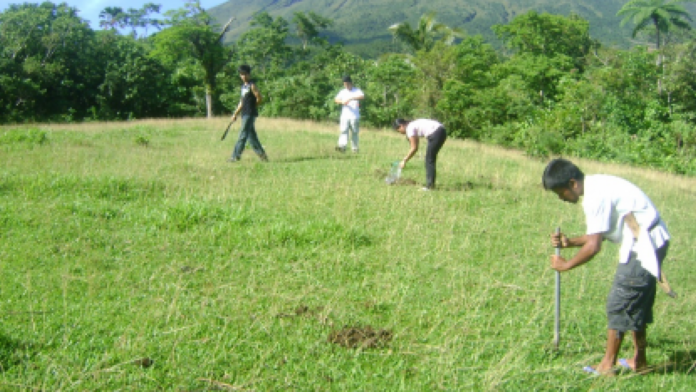The discovery of bacterial species with antibiotic and anti-cancer properties from the soils of Mt. Mayon Volcano is a breakthrough for both the Philippines and the Association of Southeast Asian Nations (ASEAN).
“These bacterial isolates may be turned into potentially useful antibiotics and anti-cancer drugs,” Asean Centre for Biodiversity Executive Director Dr. Theresa Mundita Lim said in a statement Thursday.
“Considering that the World Health Organization (WHO) has declared antimicrobial resistance as one of the top 10 global threats to public health while colorectal cancers (CRCs) are currently the third leading site of malignancy in the Philippines, this discovery is a breakthrough for the Philippines and the Asean,” she added as she congratulated the University of the Philippines Los Baños (UPLB) and its team of researchers that have recently isolated 30 bacterial species from Mayon.
Lim said the discovery also underscores the importance of mainstreaming biodiversity considerations into health while showing the need to prioritize the continuous assessment and monitoring of soil biodiversity.
Back in the early ‘50s, she said the Philippines also became the source of a bacteria that eventually led to the development of antibiotic erythromycin, a discovery by Filipino doctor Abelardo Aguilar in Iloilo City.
“As a Party to the Nagoya Protocol on Access and Benefit-Sharing, the Philippines is orientated to enhance the contribution of biodiversity to development and human well-being as well as to ensure the fair and equitable sharing of benefits from the use of its genetic resources,” she said.
“Through further research and development, this innovation could be poised to have potential commercial and non-commercial benefits that will accrue to the people living in the vicinity of Mayon Volcano and the rest of the country,” she added.
The UPLB researchers identified the specific bacterial species as “Streptomyces sp. A1-08” which has shown antibiotic activity against numerous potentially pathogenic microorganisms and anti-colorectal cancer potential.
The Department of Science and Technology (DOST) on August 3 said it was one of the 30 bacteria that were isolated from soil samples of Mt. Mayon in Malilipot, Albay.
Once the researchers have confirmed that this is a new species, they will name it “Streptomyces mayonensis A1-08 in honor of our country,” the DOST said. (PNA)


